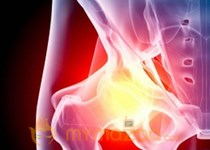Michael Burk found walking increasingly painful last year. Crossing the street and tying his shoes became challenges, and colleagues noticed he was limping at work.
On a recent morning, Mr. Burk reported to the Hospital for Joint Diseases, part of NYU Langone Medical Center in New York City, for hip-replacement surgery. His surgeon had promised him a better quality of life, and said both the operation and recovery would be quick.
About an hour later Mr. Burk was out of surgery. By 4 p.m. that afternoon he was upstairs in a ward, walking on crutches down the hall and going up and down a small model staircase. At 6 p.m., he left the hospital and headed home with his wife to Northern New Jersey, where he had a bowl of chicken soup.
Mr. Burk, 54 years old, had what NYU Langone calls same-day hip-replacement surgery, which practitioners say offers faster recovery times and less postoperative pain. With traditional hip surgery, patients typically spend days recovering in the hospital and may need additional time in a rehabilitation center.
Hip replacement, formally known as total hip arthroplasty, is considered one of the most effective surgeries in medicine, enabling the vast majority of patients to walk again pain-free. More than 340,000 of the operations are performed in the U.S. a year and include a growing number of patients in their 40s and 50s who want to maintain an active lifestyle.












